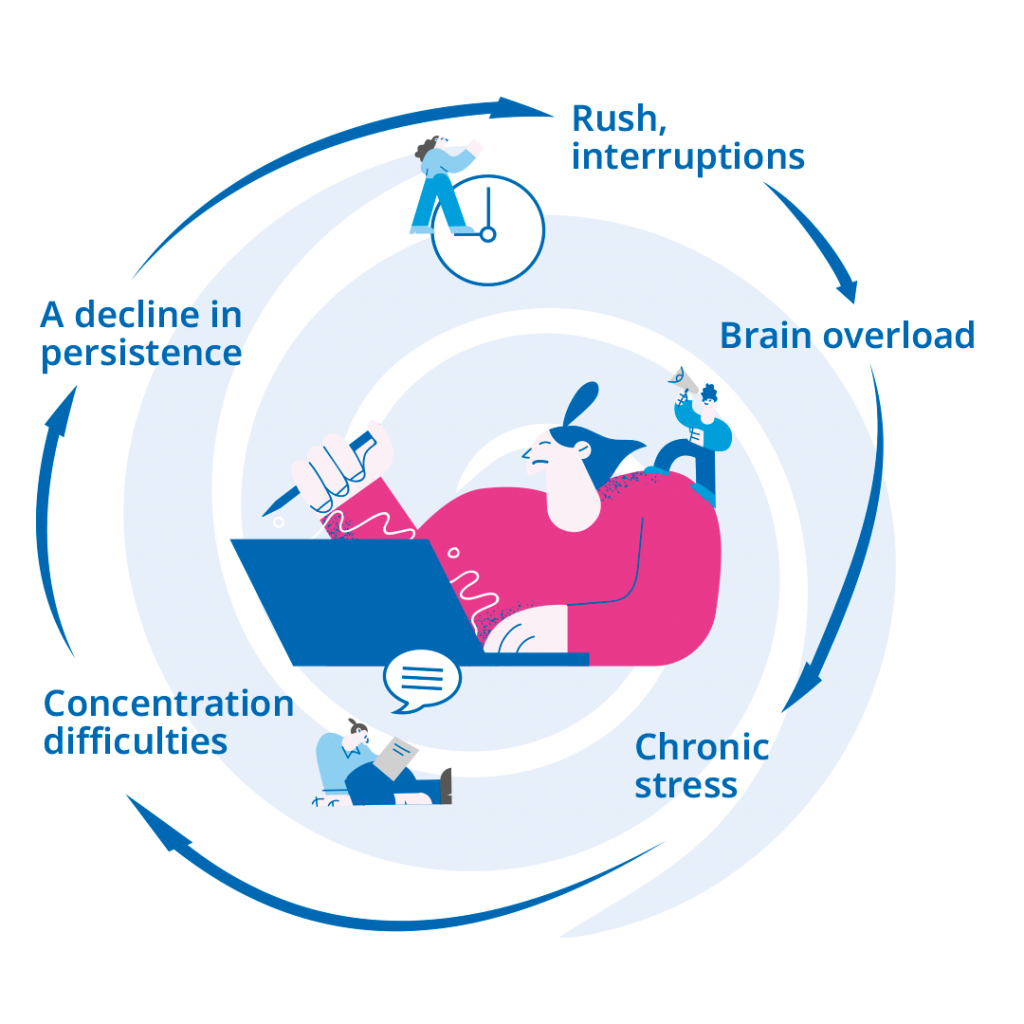Concentration
We get distracted if our mind starts wandering as we look around us or get wrapped up in our own thoughts. It’s hard to learn new things if there are interesting but irrelevant things popping into our heads.
Concentration means paying attention to something. Attention is like the beam of a torch helping us to focus on a specific target. As we keep focusing our attention on one thing at a time, we strengthen the nerve connections in the brain associated with sustained concentration.
The ability to pay attention and concentrate is mainly located in the frontal lobes at the front of the brain. These areas of the brain are the last to mature, and they keep developing until early adulthood. Even though we talk about maturing of the brain areas, the brain is never complete. Its nerve connections adapt as the brain gets used to different methods of working.
Nerve connections are like paths. The more often you use them, the stronger they get. Even adults can train their brain and improve their concentration.
Fluctuations in concentration in daily life
It’s easy to notice if you cannot really concentrate. This is perfectly normal. Concentrating becomes harder when we are tired, busy, stressed and facing too many demands.
Emotions also affect concentration and the functioning of the nervous system. It’s not easy to concentrate when faced with a whirlwind of emotions or great sorrow.
People act and react in different ways. Some people are more sensitive to external stimuli and may find them distracting. Working habits differ too. Some people work at a fast pace, while others take more time to do things. The spectrum is broad, and in a way we all have our place in this continuum.
What affects concentration?
There are many things affecting concentration. Some people might have had concentration difficulties since childhood, while others get the problem in later life. Its causes may be hard to distinguish on your own. However, there are certain things you should be aware of and how they relate to you.
Importance of sleep
We need enough sleep to keep our brain functioning well. During sleep our brain cleanses and regenerates itself. That’s why lack of sleep is detrimental. Lack of sleep has many kinds of effects on our ability to process information and also tends to impair our ability to concentrate.
Exhaustion and stress
Exhaustion and stress impair our ability to concentrate for long periods. In the case of long-term stress, the brain may adapt to the flood of messages it receives so that it becomes difficult to concentrate. We then have to consciously practise concentrating.
Mental disorders
Difficulty concentrating may sometimes be caused by a mental disorder such as depression or anxiety. These almost always impair concentration. The ability to concentrate normalizes once mental health improves with the appropriate treatment.
Changes in life situation
Changes in life situation and sudden crises may temporarily affect concentration. Unexpected adverse events causing strong reactions can easily distract our thoughts, and it’s natural that our ability to concentrate is not what it might be. Processing a crisis inevitably takes time. You should react to changes in functional capacity with empathy and demand less from yourself.

